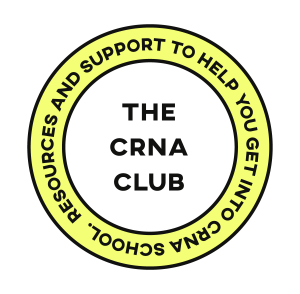By the way, are you curious how competitive of a CRNA school applicant you are?
If you are sitting on the fence, thinking to yourself, you know what? I am making a decent amount of money an ICU nurse right now. Should I really go back to school and bust my butt for three years? Incur all that debt? Undergo all that stress? Is it worth it, will my job satisfaction increase all that much?
Well, I hope to answer some of these questions for you in today's episode, and I hope that this gives you a little clarity. But, spoiler alert, I’d go back to CRNA school 1,000x over. And most of my colleagues would say the same.
Here are some reasons that my job satisfaction has skyrocketed since becoming a CRNA, and why it was worth it for me.
1. CRNAs have more autonomy
CRNAs can practice independently, but this depends on a few factors. Certain states are called opt-out states. These states “opt out” of medical supervision. CRNAs also practice under what is called an ACT model. This means that you have one anesthesiologist supervising a certain number of rooms. The ACT model can be broken down into two categories: medical supervision or medical direction. Basically, medical direction means that anesthesiologists are required to be more hands on, and medical supervision means that they can be more hands-off, and available if needed. It mostly has to do with billing requirements.
In both settings (I’ve worked in both) nobody is looking over my shoulder telling me what drug to give, nobody is micromanaging my every move. I am the one to make the decisions, I am the one to decide what to do next. This is a huge factor in my job satisfaction.
2. My critical thinking skills have improved dramatically
As an ICU nurse I was used to taking care of really sick patients. But when you add anesthesia to the mix, and add surgical complications to the mix, you really have to have solid critical thinking skills because so much can go wrong with even just one of those pieces of the puzzle. But don’t worry, that’s anesthesia school is for!
3. I get to focus on one patient at a time
Focusing on one patient at a time is one of my favorite things about being a nurse anesthetist. Even though the patient is asleep, I get to know them really well by what their vital signs are telling me. I can understand which drugs they respond to better, I get to see how sensitive they are to surgical stimulation and pain, I can see how their body reacts to different hemodynamic changes. There’s no running around from room to room, you’re focusing on one patient at a time.
4. I feel incredibly respected
What's the first thing when you think of ABC's? It's airway. The entire surgical team understands how important managing the patient's airway is. The surgeon understands that he or she cannot operate unless anesthesia is ready to proceed. The entire perioperative team is looking to you at the head of the bed for direction and guidance.
5. I have more skill in my tool belt
As a CRNA, I have more skills in my tool belt. In addition to intubation, I am able to insert central lines, arterial lines and peripheral nerve blocks. If I think the patient needs an A-line? I’m putting one in. Did we convert to an open laparotomy on a case that was supposed to be laparoscopic? No problem, I’ll do a TAP block afterwards (blocking the nerves that supply pain to that large incision).
6. My compensation has increased
Yes, traveling ICU nurses can make a LOT of money. But, for me, it’s not all about the money, as I’m sharing with you here. However, as a CRNA you’re compensated well for your role, responsibility, and education. According to the Bureau of Labor Statistics (BLS) in 2021 Certified Registered Nurse Anesthetists made a mean of $202,470. And remember, that’s the average. By working independently, doing your own billing, doing locums, you can make well over that amount. You can check out our juicy blog titled, “How Much Do CRNAs Actually Make?” here.
Have I convinced you to become a CRNA yet? If you're still on the fence go ahead and watch our free masterclass, Getting Into CRNA School 101! We dive deep into understanding what it takes to apply and get in. Maybe that will help you decide if you’re ready to make the leap!


